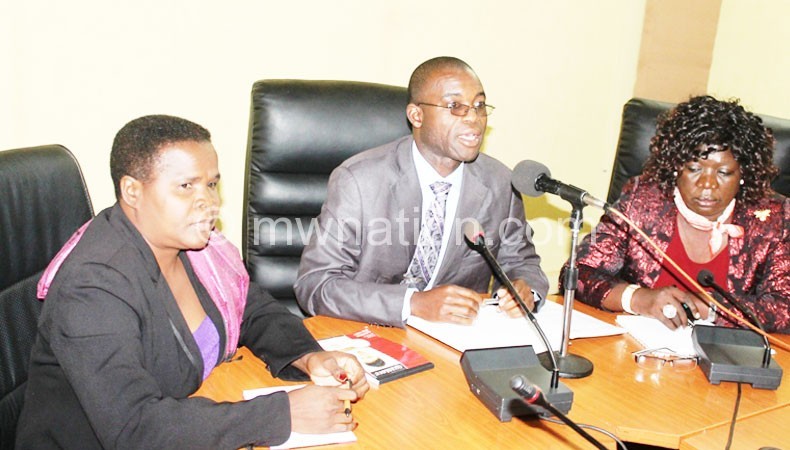Ministry probing ARVs crisis
Ministry of Health has opened an investigation into the shortage of antiretroviral (ARVs) therapy which has hit Phalombe District, forcing health workers to send back home some recipients.
The probe follows revelations by Malawi Network of People Living with HIV/Aids (Manet+) whose research established that the district is rationing the drugs.

Ministry of Health spokesperson Henry Chimbali said in an interview yesterday the ministry is aware of the situation and investigations have already been instituted to find out the cause.
He said the ministry is sending adequate supply of the drugs.
Said Chimbali: “When we got the report, the first thing we did was to send the drugs to the district. Now we are investigating how the drugs go missing because there has been steady supply of the drugs to the district.”
Manet+ executive director Safari Mbewe said the discovery of the life-threatening situation in Phalombe came after people on therapy complained about the situation in the district.
He said: “We got calls from people that are on treatment about the situation there. This prompted us to send our team who interviewed health service providers and those on treatment. They all confirmed about ARVs short supply.”
The organisation established that the district was rationing the distribution of ARVs in health centres critically affected by the shortage and that clients were being given one month supply of the drugs instead of the traditional three months.
“It was alleged that the root cause of the problem was logistical in that the central office in Lilongwe was to blame for late delivery of ARVs to health centres of the district. The shortages were also being attributed to increased numbers of enrolment of clients on ART from neighbouring Mozambique,” reported the position paper.
Stock cards at Nkhulambe Health Centre which has 4 000 people on ART showed that the last consignment was delivered in early April 2014 but by May 23, the drugs had run out.
After Phalombe District Health office (DHO) had later supplied the health centre with the drugs, they were not enough and an advice was given to source more drugs from other facilities.
Manet+ recommended that the Ministry of Health should correct the situation, investigate officers on the movement of the drugs, decentralise ARVs procurement and engage Mozambique on the shared cost of the exercise.
Chimbali dismissed accusations that the ministry was slow in sending ARVs to the district, saying everything is done according to plan while Mbewe suspects corruption and theft.
Asked whether other districts are facing similar problems, Mbewe said there was no report of such nature but promised to investigate reports that some clients at Queen Elizabeth Central Hospital are also receiving one bottle of ARVs per month.
Apart from Manet+, other organisations that wrote the position paper are National Association of People Living with HIV and Aids (Napham), Malawi Network of Religious Leaders Living with and Personally Affected by HIV and Aids (Manerela+) and Teachers Living Positively (T’lipo).
Others are Coalition of Women Living with HIV and Aids (Cowlha), Healthcare Workers Living Positively (Hecawlp) and Network of Journalists Living with HIV and Aids (Joneha).






Mwayamba kuba